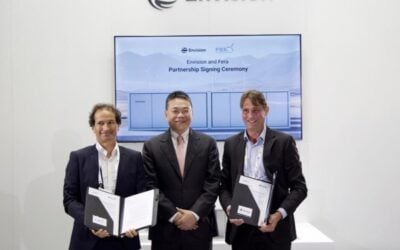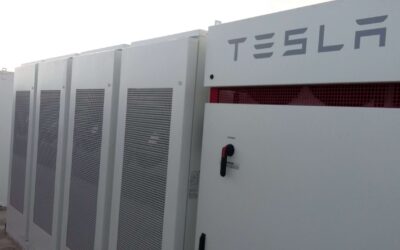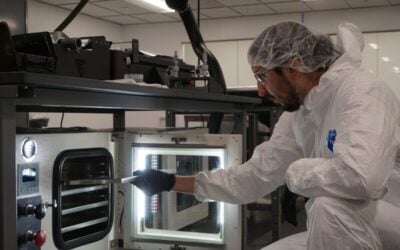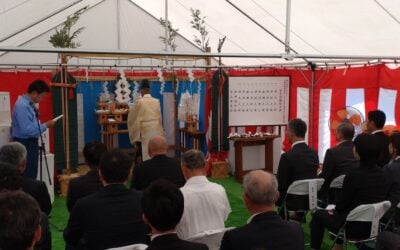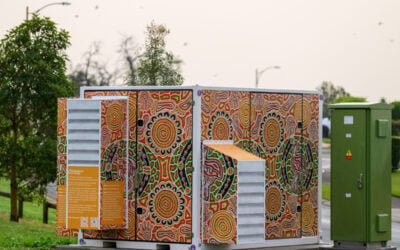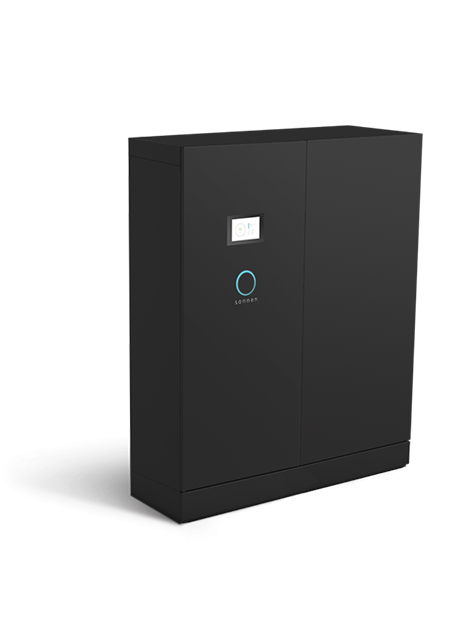
17 June 2020: Sonnen launches 30kWh home BESS with 15,000 cycle warranty
Sonnen has launched a 30kWh AC-coupled battery storage system which is warrantied for 15,000 charge cycles marketed at the company’s “eco-conscious, tech-forward customers”.
Enjoy 12 months of exclusive analysis
- Regular insight and analysis of the industry’s biggest developments
- In-depth interviews with the industry’s leading figures
- Annual digital subscription to the PV Tech Power journal
- Discounts on Solar Media’s portfolio of events, in-person and virtual
The firm, headquartered in Germany and owned by oil company Shell, said the new ecoLinx 30 intelligent energy storage units are aimed at “managing clean energy in the smart home,” and enabling longer periods of energy independence from the grid, can also be recruited into utility demand response programmes including the growing “bring your own device” schemes. The warranty for 15,000 cycles is equivalent to 15 years of normal use.
The ecoLinx 30 integrates Sonnen’s lithium iron phosphate (LFP) chemistry battery system with distributed energy resources including solar PV, automation platforms as well as controllable circuit breakers. It pairs the larger capacity of storage with 8,000w continuous output and a claimed peak inverter efficiency of 95%.
The company said it also has a shorter and wider form factor than previous models of its battery systems. Features of the device’s automation technology include weather forecasting, configurable backup power as well as smart demand control and land management. It is certified to standards including UL9540 for the battery storage system, UL1973 for the battery modules and UL1741 for the inverter.
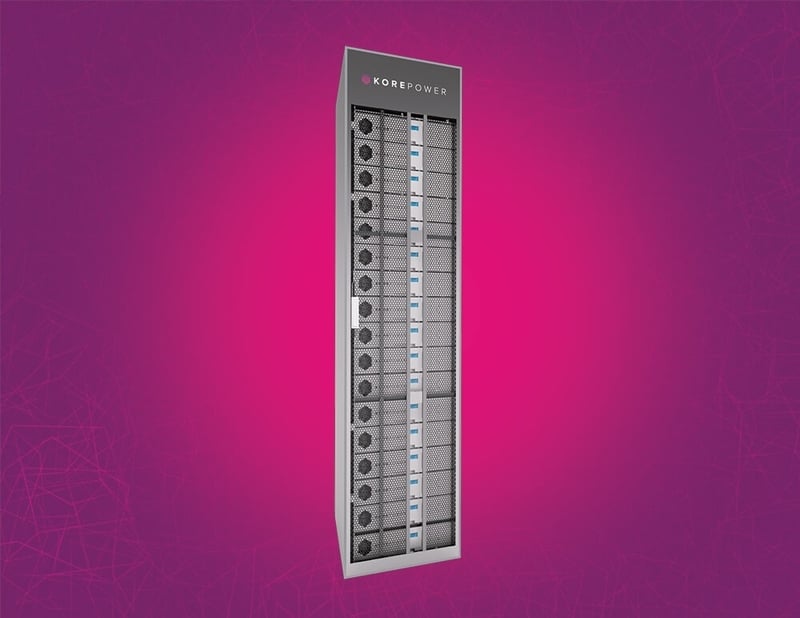
17 June 2020: BYD launches low-voltage plug ‘n play Battery Box Premium
Coming soon (August 2020) in the EMEA and APAC regions will be BYD’s Battery-Box Premium LVS – the latest low-voltage version of its Battery-Box energy storage system.
The China-headquartered rechargeable battery manufacturer has launched the system, suitable for on- or off-grid applications and scalable from 4kWh up to 256kWh. BYD claims it is a plug and play system, without the need for opening up the Power Distribution Unit (PDU) during installation. As with Sonnen, BYD has favoured lithium iron phosphate (LFP) battery chemistry for the device.
The existing line of Battery-Box Premium units earned safety certification VDE 2510-50 from TÜV Rheinland in May, as well as the 2PfG 2698 safety standard by the testing house. The new low-voltage model is currently in the process of being certified to the VDE safety standard.
BYD said the LVS model is aimed at optimising self-consumption of solar in residential and light commercial settings and enables emergency backup with high power output. A single external Battery Management Unit can be connected to multiple battery modules, while the system has six times more energy capacity available than BYD’s previous low-voltage models.
June 2020: KORE Power begins shipments of Mark1 modules for system integration testing
Earlier this month, US battery cell and energy storage rack manufacturer KORE Power said the initial shipment of its pre-production battery modules are on their way to customers for integration testing.
The company is aiming to develop and build a 10GWh lithium-ion battery and storage system factory in the US, but currently has a tie-in with Chinese chemicals company DO Flouride and a 2GWh production line based in China.
KORE Power’s Mark1 branded modules are aimed at the commercial and industrial (C&I) market and use nickel manganese cobalt (NMC) battery chemistry.
KORE CEO Lindsay Gorrill blogged for Energy-Storage.news earlier this year on the potential for C&I energy storage to create jobs in the US as well as enable decarbonisation and lower energy costs for end-customers. He said this month that Mark1 modules have undergone rigorous testing and aim to be “the safest and most reliable energy storage solution on the market”.
The Mark1 battery cells are certified to standards UN 38.3, UL 1973 and IEC 62619 for battery use in stationary storage, battery management software and for safe transportation of lithium-ion batteries. The Mark1 module and Mark1 rack already have UN 38.3 certification and are being testing for the other two standards: KORE Power claimed it expects to receive these in June and July this year.
Meanwhile the integrated storage system solution – again, branded the KORE Power Mark1 – began its evaluation for the UL 9540A certification last week, expected to be issued with certification by September. KORE said customers in regions of the US and the UK that do not require UL 9540A certification by law are already receiving Mark1 modules for integration testing, while production is expected to be expanded to fulfil orders elsewhere in the world once the Mark1 modules receive the UL 9540A certificates.
To learn more about lithium-ion battery storage system safety for PV-paired applications, including a run-through of the most important tests, standards and certifications, read the recent feature article: Safety and efficiency first in solar-plus-storage by TÜV SÜD’s Gerhard Klein and Robert Puto.

